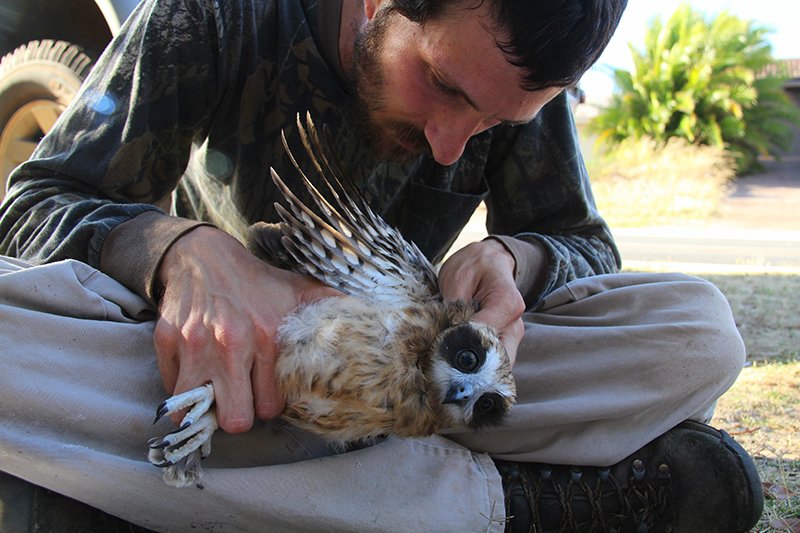Household rat poisons are killing boobook owls, study says

A NEW STUDY has found that household rodenticides are having adverse effects on Australian boobook owls (Ninox boobook) through secondary poisoning; a process where the owl consumes poisoned rodents, resulting in death.
The number of boobook owls has been dwindling over the past 10 years.
Further study into their decline, undertaken by Michael Lohr, a PhD candidate at Edith Cowan University, has led him to suspect that secondary poisoning may be to blame.
Michael was weary that rodenticides restricted to state-licensed pest controllers in the US, were available in grocery and hardware stores here in Australia, and so began looking into its impact on the bird.
To test his theory he called on the public to report any dead boobooks they found.
He then conducted necropsies on 73 owls where he discovered eight anticoagulant rodenticides commonly used in Australia.
“Brodifacoum was the most commonly found and was in the largest amounts. It is the most persistent and toxic of the second generation anticoagulant rodenticides,” Michael told Australian Geographic.
“It is used by both pest control companies and is one of the most common rat and mouse poisons available for retail sale.”
Michael explained that the anticoagulant rodenticides worked by blocking the recycling of vitamin K in the liver.
“Vitamin K is needed to synthesize a number of important clotting factors in blood. As a result, when an animal consumes an anticoagulant rodenticide, it runs out of vitamin K after about a week and ultimately dies of blood loss.”
He said that in the US and Canada the more lethal, second-generation anticoagulant rodenticides — created after pests developed more resistance to the first-generation poison — have several restrictions yet to be adopted by Australian regulators.
He said, however, that the Australian Pesticides and Veterinary Medicines Authority are currently reviewing the use of second generation products.

Michael Lohr with a boobook owl. (Image Credit: Simon Cherriman)
Reduce your use of rodenticides
Michael said that the easiest way to prevent the impacts of household rodenticides on boobook owls is to clean up.
“Removing rubbish from your yard, keeping pet food indoors, picking up fallen fruits beneath your fruit trees and using chicken feeders which prevent spillage removes potential rat and mouse food from the environment around your house.
“It is one of the most effective first steps and can make a huge difference to the number of introduced rodents around your property. Cleaning up brush piles and sealing holes in your walls and roof reduces the amount of rodent habitat and helps keep them out of your home.
He said replacing palms with native trees can be a big help as well.
“It not only removes one of the favourite hideouts for black rats (Rattus rattus), but also provides better habitat for the native predators like owls and hawks which help control rodents.”
He also advises going back to traditional forms of pest control.
“Old fashioned snap traps baited with peanut butter are very effective if placed along edges of walls and corners where rodents usually travel.
“If rodenticides are used, switching to ones that contain first generation anticoagulants like warfarin or coumatetralyl is a much safer option for wildlife up the food chain.”
READ MORE:

